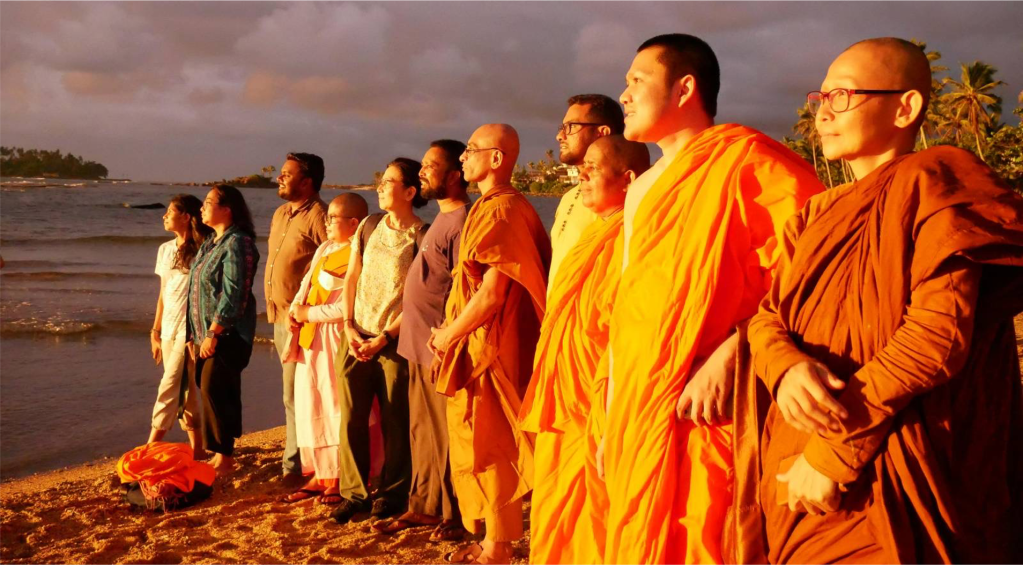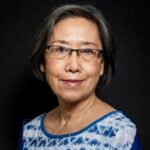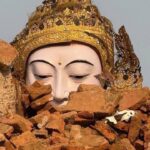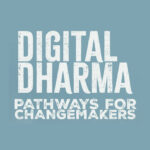During the week of May 11-18, 2024, INEB’s Sangha for Peace Project Manager Anchalee Kurutach traveled to Japan at the invitation of the Buddhist Social Ethics in Contemporary Japan Study Group (BSE). BSE was founded in late 2022 with a goal to bring critical examination of structural and cultural violence into the now mainstream aspect of Japanese engaged Buddhism. Anchalee’s visit to Japan was marked by four important engagements.
First was a meeting with the office of the World Conference of Religions for Peace (WCRP) Japan. Anchalee shared with WCRP the work INEB does under the USAID-funded Network for Peacebuilders. The visit resulted in an invitation to return to Japan to work with WCRP’s Cultivation of Peace and Reconciliation Facilitators, a program offering seminars to train Religion for Peace graduates and associates to develop skills in conflict transformation and peaceful reconciliation.
Second, Anchalee attended the 2024 Niwano Peace Prize award ceremony for Palestinian-American Prof. Mohammed Abu-Nimer, an expert on conflict resolution and dialogue for peace. Prof. Abu-Nimer’s acceptance speech was a powerful statement against the ongoing atrocity in Gaza and a strong reminder for peacebuilders to never let go of the commitment to peace.
Third, Anchalee met with an international cooperation NGO called AYUS. Over the past 30 years, AYUS has worked on issues related to peace and human rights such as poverty, injustice, environmental destruction, humanitarian assistance in conflict zones, and peacebuilding. AYUS supports NGOs to collaborate and share their resources, aiming to promote empowerment of knowledge and actions among citizens.
Fourth was the main public symposium at Ryokoku University in Kyoto. This is the second symposium organized by the Buddhist Social Ethics in Contemporary Japan Study Group or BSE. Anchalee served as a keynote speaker, bringing perspectives on Gender Equality and Social Inclusion, wherein she examined inclusive peace and positive peace-building practices, with examples of Sangha for Peace and Women Peacebuilders projects. The concept of intersectionality, which is key to understanding how an individual’s social and political identities result in the unique experience of discrimination, sparked great interest among symposium participants.
The symposium’s three other main speakers were Ms. Miyoushi Yasuko, Director of General Affairs at World Conference of Religions for Peace, Ms. Edaki Mika, AYUS director, and Rev. Bettina Rangner-Teramoto of Bomori Gokurakuji, Osaka. Ms. Miyoushi shared about gender issues in a socially-engaged lay Buddhist denomination of Rissho Koseikai, which is the host of WCRP. WCRP introduced the Same-Sex Partnership system in April 2022, a policy that has opened the door for collecting opinions from Rissho Koseikai staff about family and gender diversity, covering 135 different items of practice guidelines. There are some areas that do not yet exhibit the gender equality standard.
Ms. Edaki Mika shared powerful insights about her own experience internalizing gender norms and discrimination into her work life. She discussed the disjuncture between engaged Buddhism and the gender issues in Japan. While socially-engaged Buddhism seems to grow, gender issues do not receive any priority and seem to be sidelined.
Rev. Teramoto described women’s specific roles in the Jodo Shinshu Buddhist organizations. She shared that many women are devoted and active in social work areas and also assume leadership roles. However, the highest positions and the policy-making process are not available for women.
Anchalee’s visit to Japan to meet with Japanese engaged Buddhists and feminists was a positive development in the partnership between INEB and BSE. Future collaboration will benefit inclusive peace work in the region.
Credit to Jonathan Watts






